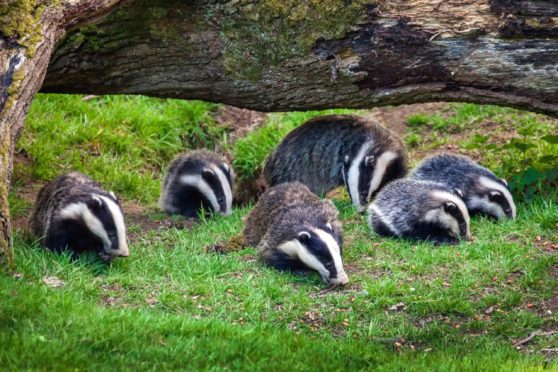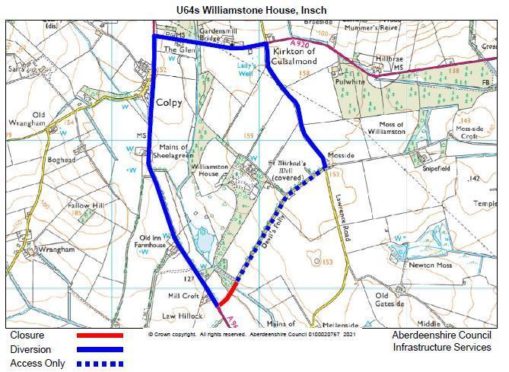Mischievous badgers have caused Aberdeenshire Council to close one of their roads for “some time”.
The local authority announced it shut the U64 just south of Colpy due to badgers burrowing underneath it.
They are undermining the road and causing it to become uneven.
That, along with potholes, has meant the council has had to close the route.
They have published a diversion that motorists can use.
The road “may have to stay closed for some time” as the badgers will be “encouraged” to use another sett.
The council’s roads team wrote on Twitter: “Unfortunately we’ve had to close the U64 just south of Colpy.
“As if potholes weren’t creating enough difficulties for everyone, we now have badgers in on the act and undermining our roads.
“It may have to stay closed for some time while they’re encouraged to use another sett.”
The local authority has called in an environmental specialist, who will help them move the badgers in a safe way.
Badgers are a protected species so cannot be killed or maimed in any way.
Instead, the council is going to wait until the animals move setts in the summer before getting rid of their home under the road.
A statement from the council added: “Apparently a cete of badgers use a number of local setts in a year but are fairly inactive at the moment.
“When they move to their summer residence, we’ll board up the front door under the road.”
There are strong legal protections in place for badgers and their habitats.
Badger cub season is in January and February, but they don’t leave their setts for a few months, meaning they are unlikely to leave until late spring or early summer.
Emily Platt of the Scottish Badgers charity said: “Badgers live in family units of four to six individuals on average, although the size and numbers of setts – the underground structure where they live – and entrances won’t be a reflection on the number of badgers present.
“They build underground structures where they will spend the day sleeping.
“These often feature a labyrinth of tunnels and chambers – anything from a metre below the surface to several feet deep.
“They are basically pre-programmed to dig, so anywhere where there’s soft, diggable ground.
“Sometimes we see badgers displaced as a result of poorly-done land management practices such as new developments, forestry operations or agricultural practices, which can lead them to creating new setts wherever they can.”
She added: “Badgers and their setts have legal protection as a result of ongoing persecution, such as badger baiting.
“As a result a special licence is required through Nature Scot, which enables certain works by a badger sett by a professional, in this case an ecologist.
“It’ll need to be determined what sort of sett this is, for example whether it has been used for birthing or not, before a suitable licence can be obtained.
“Usually a trail camera can be used to monitor whether badgers are still visiting the sett, as well as identifying common signs of use such as fresh footprints, or balled up vegetation like dried grass they use for bedding.
“We would recommend if there’s any sign of badgers creating setts in unsuitable locations, that advice is sought immediately, otherwise situations like this can arise over time.
“There are solutions, it just requires a few extra steps to ensure the badgers’ welfare and that everything remains legal.”

